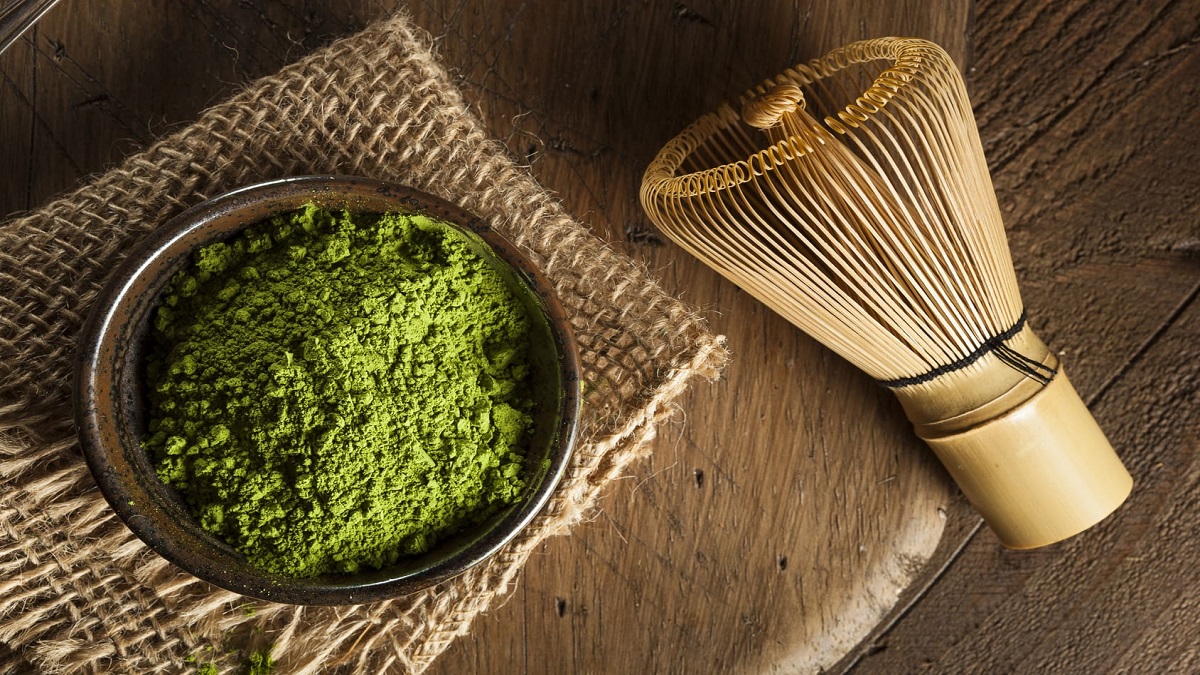Matcha has been increasingly popular as a healthy and stimulating drink in recent years. Matcha is a Japanese green tea powder with a distinct flavor and possible health advantages. As this gains popularity, its caffeine concentration is being compared to that of other popular beverages.
Understanding Caffeine
Caffeine is a stimulant that occurs naturally in foods like tea, coffee, and chocolate. As a stimulant of the central nervous system, it promotes mental alertness and concentration. However, jitteriness, sleeplessness, and a faster heart rate might result from consuming too much coffee. Knowing how much caffeine is in matcha will help you make a decision about whether or not to drink it.
The Caffeine Content in Matcha
Caffeine is present in matcha, however the exact amount varies. The powder has between 30 and 50 mg of caffeine per teaspoon (around 2 grams). These numbers, however, may change depending on the it’s quality, the quantity of the portion, and the method of preparation.
Caffeine content per serving is lower in matcha than in coffee or regular green tea. Comparatively, the amount of caffeine in a cup of it is typically lower than that of a cup of brewed coffee, at roughly 95 milligrams.

Factors Affecting Caffeine Levels in Matcha
Matcha’s level of caffeine is affected by a number of different factors:
- Quality of Matcha: Caffeine levels tend to be lower in higher quality of it. It’s leaves are darkened before to harvest in order to maximize the concentration of specific chemicals while decreasing the caffeine content.
- Serving Size: The amount of caffeine in matcha depends on how much powder is used per serving. Caffeine levels can be adjusted by adding more or less of the powder, respectively.
- Preparation Method: The amount of caffeine in it might vary depending on how it’s made. Caffeine is traditionally extracted from matcha by whisking it with hot water. However, the caffeine content may be altered by using different preparation techniques or substances, such as cold brewing or milk.
Health Benefits of Matcha
Matcha has many health advantages beyond just its caffeine level. Some major benefits include the following:
- Rich in Antioxidants: Catechin antioxidants are abundant in matcha and work to defend the body against oxidative stress and free radicals.
- Boosts Concentration and Focus: It’s amino acid L-theanine counteracts caffeine’s possible jittery effects by promoting calm and attention.
- Supports Metabolism: Matcha’s potential benefits for weight management and fat oxidation may be due to its link to a slight rise in metabolic rate.
- Provides Essential Nutrients: Matcha is an excellent dietary supplement since it contains beneficial nutrients like vitamins, minerals, and fiber.
Managing Caffeine Intake from Matcha
If you’re worried about the amount of caffeine in matcha you’re consuming, try these strategies:
- Know Your Sensitivity: Learn how much caffeine your body can handle and adapt your matcha intake accordingly. Select this with less caffeine if you’re extremely sensitive to the stimulant.
- Consider Timing: Since this contains caffeine, it’s best to avoid drinking it right before bed. If you want to reap the invigorating benefits without letting it interfere with your sleep schedule, drinking it earlier in the day is your best bet.
- Experiment with Serving Size: Determine how much caffeine you can handle by experimenting with different serving sizes of it’s powder. It’s best to begin with a smaller amount and adjust up or down from there.
- Explore Other Matcha Varieties: There are many kinds of matcha, each with its own unique flavor and amount of caffeine. Find the one that satisfies your taste buds and caffeine needs by trying out various varieties.
Conclusion
Matcha is a delicious drink that contains only a small quantity of caffeine. The high quantities of antioxidants and relaxing effect of L-theanine in it make it a favorite among tea drinkers. Matcha can be part of a healthy, well-rounded diet and lifestyle if you take the time to learn about the elements that determine its caffeine content and adjust your use accordingly.
FAQs
Is matcha higher in caffeine than regular green tea?
No, it generally contains less caffeine than regular green tea. However, the exact amount can vary depending on factors like quality, serving size, and preparation method.
Can matcha be consumed by individuals sensitive to caffeine?
Individuals who are sensitive to caffeine should be mindful of their consumption. They can opt for lower-caffeine or adjust the serving size to manage their caffeine intake effectively.
Can matcha be enjoyed as a part of a weight loss program?
It has been associated with a modest increase in metabolic rate and may support weight management. However, it’s essential to incorporate matcha into a comprehensive weight loss program that includes a balanced diet and regular physical activity.
How does matcha’s caffeine content compare to coffee?
It generally contains less caffeine per serving than coffee. While coffee can have around 95 milligrams of caffeine per cup, it provides a more moderate caffeine boost.











